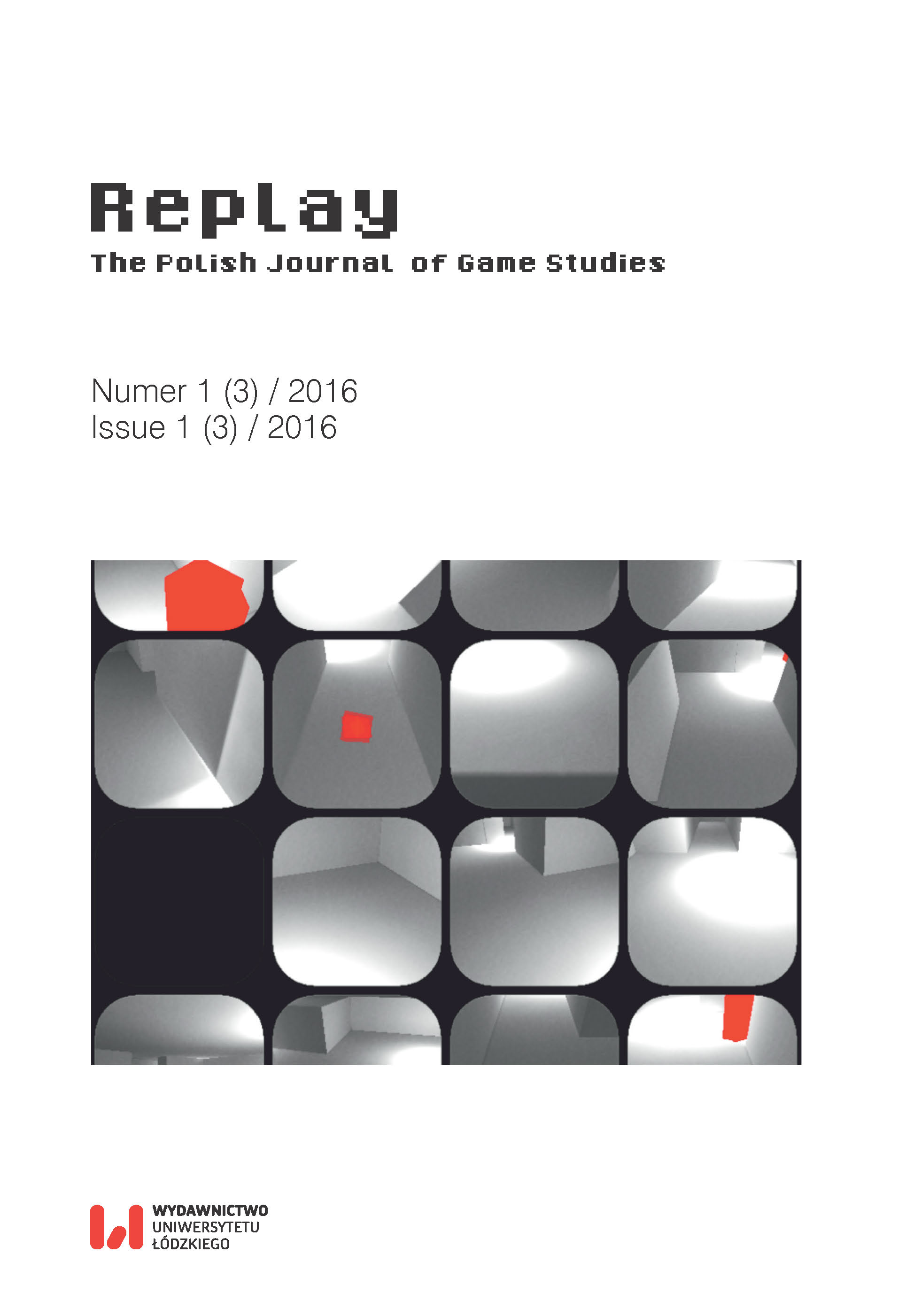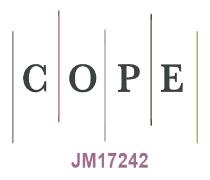Game Engine Conventions and Games that Challenge them: Subverting Conventions as Metacommentary
DOI:
https://doi.org/10.18778/2391-8551.03.03Keywords:
game engine, game development, hobbyist games, participatory culture, platform studies, creativity, innovation, autoethnographyAbstract
Consumer-grade game engines such as Multimedia Fusion and RPG Maker have dramatically extended the reach of digital games as a medium. They have also spawned online communities, where conventions and canons of using these tools have evolved. These partly stem from the functional constraints of the game engines themselves and are institutionalized through manuals, examples, tutorials, and games made with them. However, some members of game engine communities actively seek to challenge these conventions by experimenting with the engines and finding ingenious ways to put them to unexpected uses. Such experiments can be regarded as a form of metacommentary on the engines’ capabilities and limitations. While arguably impractical and inefficient, they enrich the scope of what can be done with the engine and can contribute to its further development.
References
Anderson, C. (2012). Makers: The New Industrial Revolution. New York: Crown Business.
Google Scholar
Bogost, I. (2008). Unit Operations : An Approach to Videogame Criticism. Cambridge, MA: The MIT Press.
Google Scholar
Bogost, I., & Montfort, N. (2007). New Media as Material Constraint. An Introduction to Platform Studies. Electronic Techtonics: Thinking at the Interface. Proceedings of the First International HASTAC Conference, 176–193.
Google Scholar
Ellis, C. (2004). The ethnographic I: A methodological novel about autoethnography. New York: Altamira Press.
Google Scholar
Genette, G., & Maclean, M. (1991). Introduction to the Paratext. New Literary History, 22(2), 261–272.
Google Scholar
DOI: https://doi.org/10.2307/469037
Gershon, I. (2011). The Breakup 2.0: Disconnecting over New Media. Ithaca, NY: Cornell University Press.
Google Scholar
DOI: https://doi.org/10.7591/9780801458637
Hallam, E., & Ingold, T. (2007). Creativity and Cultural Improvisation. Bloomsbury Academic.
Google Scholar
Haraway, Donna. (1991). A Cyborg Manifesto: Science, Technology, and Socialist-Feminism in the Late Twentieth Century. In Simians, Cyborgs and Women: The Reinvention of Nature (pp. 149–181). New York: Routledge.
Google Scholar
Henri, F., & Pudelko, B. (2003). Understanding and analysing activity and learning in virtual communities. Journal of Computer Assisted Learning, 19(4), 474–487.
Google Scholar
DOI: https://doi.org/10.1046/j.0266-4909.2003.00051.x
Hosfield, R. T. (2009). Modes of transmission and material culture patterns in craft skills. In Shennan, Stephen (Ed.), Pattern and Process in Cultural Evolution, 45–60. Berkeley: University of California Press.
Google Scholar
DOI: https://doi.org/10.1525/9780520943360-005
Huhtamo, E. (1995). Seeking Deeper Contact: Interactive Art as Metacommentary. Convergence: The International Journal of Research into New Media Technologies, 1(2), 81–104.
Google Scholar
DOI: https://doi.org/10.1177/135485659500100209
Ingold, T. (2001). Beyond art and technology: the anthropology of skill. In M. B. Schiffer (Ed.), Anthropological perspectives on technology, pp. 17–31. Albuquerque: University of New Mexico Press.
Google Scholar
Jenkins, H. (2006). Fans, bloggers, and gamers: Exploring participatory culture. New York: NYU Press.
Google Scholar
McFedries, P. (2007). Technically speaking: the hobbyist renaissance. IEEE Spectrum, 44(6), 88.
Google Scholar
DOI: https://doi.org/10.1109/MSPEC.2007.369278
Rubin, F. (1974). The Lee Path Connection Algorithm. IEEE Transactions on Computers, C-23(9), 907–914.
Google Scholar
DOI: https://doi.org/10.1109/T-C.1974.224054
Schulte, C. (2013). Reflections on the Role of Programming in Primary and Secondary Computing Education. Proceedings of the 8th Workshop in Primary and Secondary Computing Education, 17–24.
Google Scholar
DOI: https://doi.org/10.1145/2532748.2532754
Short, N. P., Turner, L., & Grant, A. (2013). Contemporary British Autoethnography. Rotterdam: Sense.
Google Scholar
DOI: https://doi.org/10.1007/978-94-6209-410-9
Soroka, V., & Rafaeli, S. (2006). Invisible Participants: How Cultural Capital Relates to Lurking Behavior. Proceedings of the 15th International Conference on World Wide Web, 163–172.
Google Scholar
DOI: https://doi.org/10.1145/1135777.1135806
Toffler, A. (1981). The Third Wave. New York: Bantam Books.
Google Scholar
Croshaw, B. (2005). 1213. [PC], Self-published. Retrieved from http://www.fullyramblomatic.com/1213.
Google Scholar
Croshaw, B. (2007). Trilby: The Art of Theft. [PC], Self-published. Retrieved from http://www.escapistmagazine.com/content/games/yahtzee/artoftheft.
Google Scholar
Fiadotau, M. (2006). Gde Dostat’ 300,000 Evro? (Where to Get €300,000?). [PC], Selfpublished. Retrieved from https://urq.plut.info/300000euro.
Google Scholar
Fiadotau, M. (2007). Eksperimenty Xlomidomanada (Xlomidomanad’s Experiments). [PC], Self-published. Retrieved from http://rilarhiv.ru/urq.htm.
Google Scholar
Fiadotau, M. (2007). Korporaciya Mysli (Thoughts Corporation). [PC], Self-published. Retrieved from https://urq.plut.info/corp.
Google Scholar
Janson, A., Kutnick, G., Strachan, A. et al. (1994). MegaZeux. [PC], Self-published.
Google Scholar
Potomac Computer Systems (1991). ZZT. [PC], Potomac Computer Systems.
Google Scholar
Vergilio, C. (NA). Dark Woods. [PC], Self-published. Retrieved from http://www.gamemakergames.com/archive/dark-woods-gm.
Google Scholar










